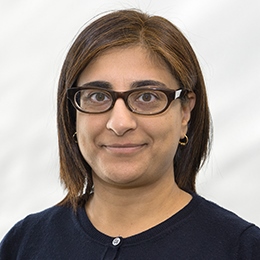The 3rd Symposium on Computing and Mental Health took place at CHI 2018, Montreal, on Sunday 22nd April. The symposium attracted over 60 participants and followed successful symposia at CHI 2016 and 2017. We’ve put some photos on this page and you can browse the organizers’ and participants’ tweets at https://twitter.com/search?q=cmh2018 .
We are planning CMH 2019 now – to be held at CHI 2019 in Glasgow, UK.
Call For Participation
The World Health Organization predicts that by the year 2030, mental illnesses will be the leading disease burden globally. Advances in technology create opportunities for close collaboration between computation and mental health researchers. The intersection between ubiquitous computing and sensing, social media, data analytics and emerging technologies offers promising avenues for developing technologies to help those in mental distress. Yet for these to be useful and usable, human-centered design and evaluation will be essential. The third in our series of Symposia on Computing and Mental Health will provide an opportunity for researchers to come together under the auspices of CHI to discuss the design and evaluation of new mental health technologies. Our emphasis is on understanding users and how to increase engagement with these technologies in daily life.
The full Call-For-Papers is available here. Please cite as “G. Wadley, R.A. Calvo, J. Torous, M. Czerwinksi (2018). 3rd Symposium on Computing and Mental Health: Understanding, Engaging, and Delighting Users. in Proceedings of the 2018 CHI Conference Extended Abstracts on Human Factors in Computing Systems.”
There were four submission types:
- Short papers were submitted to Easychair and are available below. Authors presented a poster at the symposium.
- Long papers were submitted straight to JMIR. Authors were invited to give a talk at the symposium.
- Posters described work-in-progress, a technology, or an existing publication.
- Social papers acted as a CV to support networking at the symposium.
Our earlier special issue of JMIR stemming from the 2016 workshop is available at http://www.jmir.org/themes/461 .
We used the Twitter hashtag #CMH2018 .
CfC Challenge
Petr Slovak told us about this great opportunity for funding from the Committee for Children on the topic of improving children’s mental well-being. Committee for Children is a non-profit organisation that develops evidence-based social-emotional learning programs for children in schools. CfC is most interested in project proposals that can lead to scalable interventions with real-world impact. The aim of the seed-funded work ($25k) is to provide proof-of-concept data to show feasibility and feed into to further funding phases ($100k, $250k, … ).
Schedule
- 9am Introduction and welcome (symposium organizers – details below)
- 9:30 Keynote talks (speaker details below)
- 10:30 Coffee and posters
- 11:30 Design exercise in small groups
- 12:30 Lunch
- 2pm Presentations by Special Issue authors (details below)
- 3pm Coffee and posters
- 4pm Panel discussion: “Is technology the answer? Critical and ethical views” (details below)
- 4:30 Structured discussion on future directions
Keynote Speakers
 Steve Whittaker is Professor of Psychology at UCSC. He works at the intersection of Psychology and Computer Science. He studies how technology is affecting fundamental aspects of our everyday lives, using insights from Cognitive and Social Science to design new digital tools to support well being and to help manage personal information. His past research has been funded by the EU, NSF, EPSRC, Google and Microsoft, and he has worked at Bell Labs, IBM Labs and HP Labs. He is Editor of Human Computer Interaction. His awards include a Lifetime Research Achievement Award from the Association of Computation Machinery Computer Human Interaction Society, and he is an ACM Fellow.
Steve Whittaker is Professor of Psychology at UCSC. He works at the intersection of Psychology and Computer Science. He studies how technology is affecting fundamental aspects of our everyday lives, using insights from Cognitive and Social Science to design new digital tools to support well being and to help manage personal information. His past research has been funded by the EU, NSF, EPSRC, Google and Microsoft, and he has worked at Bell Labs, IBM Labs and HP Labs. He is Editor of Human Computer Interaction. His awards include a Lifetime Research Achievement Award from the Association of Computation Machinery Computer Human Interaction Society, and he is an ACM Fellow.
 Shalini Lal is Principal Scientist and Assistant Professor at the School of Rehabilitation, Faculté de Médecine, Université de Montréal. Her research involves the development, implementation, and evaluation of innovative models to increase access to mental health care for youth and their families, leveraging information and communication technologies to support and augment the delivery of mental health care, and studying the impact of services on youth resilience, recovery, and service engagement based on patient and family perspectives. She is a Principal Lead of ACCESS-Canada, a pan-Canadian network that is implementing and evaluating service transformation in youth mental health at sites across Canada.
Shalini Lal is Principal Scientist and Assistant Professor at the School of Rehabilitation, Faculté de Médecine, Université de Montréal. Her research involves the development, implementation, and evaluation of innovative models to increase access to mental health care for youth and their families, leveraging information and communication technologies to support and augment the delivery of mental health care, and studying the impact of services on youth resilience, recovery, and service engagement based on patient and family perspectives. She is a Principal Lead of ACCESS-Canada, a pan-Canadian network that is implementing and evaluating service transformation in youth mental health at sites across Canada.
 Gunther Eysenbach conducts research into healthcare, health policy, eHealth, and consumer health informatics. He is senior scientist at the Centre for Global eHealth Innovation at the University Health Network (Toronto) and associate professor in the Institute of Health Policy, Management and Evaluation at the University of Toronto. He is editor-in-chief of the Journal of Medical Internet Research (JMIR) and organizer of the annual Medicine 2.0 Congress.
Gunther Eysenbach conducts research into healthcare, health policy, eHealth, and consumer health informatics. He is senior scientist at the Centre for Global eHealth Innovation at the University Health Network (Toronto) and associate professor in the Institute of Health Policy, Management and Evaluation at the University of Toronto. He is editor-in-chief of the Journal of Medical Internet Research (JMIR) and organizer of the annual Medicine 2.0 Congress.
Special Issue authors
The following authors presented papers which had been submitted to the Special Issue.
- Ada Ng, Northwestern University: Veterans’ Perspectives on Fitbit Use in Treatment for Posttraumatic Stress Disorder: An Interview Study
- Alicia Heraz, BMLab: Touching Force-Sensitive Screens Reveal Emotions
- Stephen Schueller, Northwestern University: Consumer Discovery of and Interest in Mental Health Apps: A Survey and Focus Group Study
- Regan Mandryk and Max Birk, University of Saskatchewan:
Improving the Efficacy of Cognitive Training for Digital Mental Health Interventions through Avatar Customization - Katarzyna Stawarz, Chris Preist, Debbie Tallon, Nicola Wiles, David Coyle, University College Dublin. User Experience of CBT Apps for Depression: An Analysis of App Functionality and User Reviews
- MI Zhang, Michigan State University: Understanding the Needs of Mobile Behavioral Sensing Technology for Enhancing University Counseling Services
- Youngjun Cho, Nadia Bianchi-Berthouze, Simon Julier, University College London: Instant Automated Inference of Perceived Mental Stress through Smartphone PPG and Thermal Imaging
- Darius Rohani, Technical University of Denmark: Data-driven learning in high-resolution activity sampling from depressed patients with bipolar disorder
- Rob Morris, Koko.com: System Design and User Perceptions of an Artificially Empathic Conversational Agent
- Abhishek Pratap, University of Washington: Using mobile apps to assess and treat depression in Hispanics and Latinos: Results from a fully remote and randomized clinical trial
Short papers
Click to view the short papers and posters.
Panel discussion: “Is technology the answer? Critical and ethical views”
In this panel discussion we took a critical look at ethical aspects of research into computing and mental health, asking:
- As the people building, testing, and using computing mental health tools, what responsibility and role do we have in ensuring and promoting the proper use of these tools?
- How can we design to promote ethical use of mental health technology? How can we be sure that our research has a positive net impact? (https://acm-fca.org/2018/03/29/negativeimpacts/)
- How can technology be the answer instead of becoming the problem that it has been seen as in several recent cases:
https://www.nytimes.com/2018/03/19/technology/facebook-cambridge-analytica-explained.html
https://www.pinknews.co.uk/2018/04/06/grindr-finally-apologises-after-hiv-data-row/
https://www.cnbc.com/2018/04/05/facebook-building-8-explored-data-sharing-agreement-with-hospitals.html
Organizers
 Greg Wadley is a lecturer in the School of Computing and Information Systems at the University of Melbourne, Australia. His research involves the design and evaluation of technologies for health and wellbeing. He has collaborated on 14 funded projects in youth and perinatal mental health, occupational health, smoking cessation, social connection and Indigenous wellbeing. He leads a project to design and trial virtual reality software for youth mental health, and is part of a 3 year Discovery Indigenous project to co-design technologies with Indigenous Australians. He holds degrees in computer science (Queensland), cognitive science (Melbourne), and human-computer interaction (Melbourne).
Greg Wadley is a lecturer in the School of Computing and Information Systems at the University of Melbourne, Australia. His research involves the design and evaluation of technologies for health and wellbeing. He has collaborated on 14 funded projects in youth and perinatal mental health, occupational health, smoking cessation, social connection and Indigenous wellbeing. He leads a project to design and trial virtual reality software for youth mental health, and is part of a 3 year Discovery Indigenous project to co-design technologies with Indigenous Australians. He holds degrees in computer science (Queensland), cognitive science (Melbourne), and human-computer interaction (Melbourne).
 Rafael A. Calvo is Professor at the University of Sydney, and ARC Future Fellow. He worked at the Language Technology Institute in Carnegie Mellon University, Universidad Nacional de Rosario (Argentina) and on sabbaticals at the University of Cambridge and the University of Memphis. Rafael also has worked as an Internet consultant for projects in the US, Australia, Brasil, and Argentina. He is the author of two books and over 100 publications in the fields of learning technologies, affective computing and computational intelligence. Rafael is Associate Editor of the Journal of Medical Internet Research Human Factors (JMIR-HF), co-Editor of the Oxford Handbook of Affective Computing, and co-author of Positive Computing (MIT Press) with Dorian Peters.
Rafael A. Calvo is Professor at the University of Sydney, and ARC Future Fellow. He worked at the Language Technology Institute in Carnegie Mellon University, Universidad Nacional de Rosario (Argentina) and on sabbaticals at the University of Cambridge and the University of Memphis. Rafael also has worked as an Internet consultant for projects in the US, Australia, Brasil, and Argentina. He is the author of two books and over 100 publications in the fields of learning technologies, affective computing and computational intelligence. Rafael is Associate Editor of the Journal of Medical Internet Research Human Factors (JMIR-HF), co-Editor of the Oxford Handbook of Affective Computing, and co-author of Positive Computing (MIT Press) with Dorian Peters.
 John Torous, MD is co-director of the digital psychiatry program at Beth Israel Deaconess Medical Center, a Harvard Medical School affiliated teaching hospital, where he also serves as a staff psychiatrist and clinical informatics fellow. He has a background in electrical engineering and computer sciences and received an undergraduate degree in the field from UC Berkeley before attending medical school at UC San Diego. He completed his psychiatry residency at Harvard. Dr. Torous is active in investigating the potential of mobile mental health technologies for psychiatry, developing smartphone tools for clinical research, leading clinical studies of smartphone apps for diverse mental illnesses, and publishing on the research, ethical, and patient perspectives of digital psychiatry. He serves as editor-in-chief for JMIR Mental Health and currently leads the American Psychiatric Association’s work group on the evaluation of smartphone apps.
John Torous, MD is co-director of the digital psychiatry program at Beth Israel Deaconess Medical Center, a Harvard Medical School affiliated teaching hospital, where he also serves as a staff psychiatrist and clinical informatics fellow. He has a background in electrical engineering and computer sciences and received an undergraduate degree in the field from UC Berkeley before attending medical school at UC San Diego. He completed his psychiatry residency at Harvard. Dr. Torous is active in investigating the potential of mobile mental health technologies for psychiatry, developing smartphone tools for clinical research, leading clinical studies of smartphone apps for diverse mental illnesses, and publishing on the research, ethical, and patient perspectives of digital psychiatry. He serves as editor-in-chief for JMIR Mental Health and currently leads the American Psychiatric Association’s work group on the evaluation of smartphone apps.
 Mary Czerwinski is an American cognitive scientist and computer-human interaction expert who works for Microsoft Research as manager of their research group on visualization and interaction. Czerwinski earned her doctorate in cognitive psychology from Indiana University. She worked in computer-human interaction for Bellcore, the Johnson Space Center, and Compaq, and also held an adjunct position at Rice University while at Compaq. She moved to Microsoft in 1996, as a usability manager in product development. Two years later, she joined Microsoft Research. She is an adjunct professor in the University of Washington’s Information School. In 2015 she was named a Fellow of the Association for Computing Machinery “for contributions to human-computer interaction and leadership in the CHI community.”
Mary Czerwinski is an American cognitive scientist and computer-human interaction expert who works for Microsoft Research as manager of their research group on visualization and interaction. Czerwinski earned her doctorate in cognitive psychology from Indiana University. She worked in computer-human interaction for Bellcore, the Johnson Space Center, and Compaq, and also held an adjunct position at Rice University while at Compaq. She moved to Microsoft in 1996, as a usability manager in product development. Two years later, she joined Microsoft Research. She is an adjunct professor in the University of Washington’s Information School. In 2015 she was named a Fellow of the Association for Computing Machinery “for contributions to human-computer interaction and leadership in the CHI community.”


